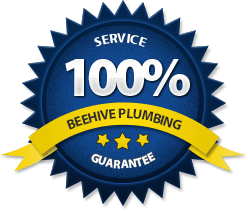One of the most crucial components of residential living is having good, clean running water. In many situations, your tap water is enough to keep your daily water needs satisfied.
The United States has one of the safest drinking water supplies in the world. Even so, there are places where the water supply needs some work. If you want to use your water for drinking or even cooking, a whole house water filter is the best.
How does it work? Is it worth it to install the device? In this guide, we’ll talk about the merits of getting a water filter for your entire home.
1. Why You Need A Water Filtration System
The Environmental Protection Agency (EPA) has many standards for public drinking water. Even so, homeowners spend money on water treatment units. They do so to complete a few different tasks of further cleaning their water supply.
These tasks include:
- Removing different water contaminants
- Correcting the taste of drinking water
- Taking extra steps to protect family health
Many homeowners show concern about contaminants in their water supply. While the water from treatment facilities is safe, it passes through ducts and piping. Some have concerns this can bring in diseases or cause digestive issues.
Most household residents want to improve the taste of their water. If you are getting your water from a locale without a treatment plant, a water filter can be vital.
Many tap water options in municipalities without a treatment facility in the US have contaminants. Many will have medium to high levels of metals and contamination. Industrial and environmental culture is pushing the water sources to the brink.
Contaminants can range from different minerals occurring in the soil to bacteria coming in the water. Many water sources like lakes and streams have different animal byproducts in them. Add that to the man made pollution we have and you can expect your water to be problematic.
2. How Do I Know If I Need Water Filtration?
So, your water may have problems, but it’s not convincing enough for you. That’s understandable considering the price of adding a whole house water filter. There is one sure thing that can help you find out if you need it.
Your best chance is to get your water tested by certified water testing services. These laboratories will give your water a check for different materials. They will check for contamination in your tap water, testing for any bacteria and microbes.
By doing so, you can check if you need a whole-house water filtration system. If the tests turn out negative, congratulations! You can drink and use your tap water for your daily needs.
If you get positive contaminants in your water, then it’s time to consider getting a filter. A filtration system for your entire home is a valuable asset that can keep your family healthy. This can keep you away from many diseases that can compromise you and your loved ones.
3. Benefits of Whole-House Filtration
So, what are the benefits of whole-house filtration for your home? Some people imagine that it’s only drinking water, but this clean drinking water is a vital upgrade.
First, filtered water in your entire home means safe, drinkable water everywhere. Every water source you have is portable, which means you don’t have to do anything special. You give your home healthier drinking and cooking water.
Clean water is also beneficial for your skin when you take a shower or bath. Contaminated water can cause different skin problems, including blisters, sores, and skin dryness. Fewer contaminants mean you can get better, healthier skin and hair.
Another advantage of softened, filtered water is the removal of excess minerals. Water from the tap has its own trace minerals, which includes calcium and magnesium carbonates. While these minerals are trace, they can accumulate over time in your porcelain and tiles.
This accumulation can become soap scum and limescale from the hard water. Through a filtration system, you get better, softer water that is also less harsh to your home. This can help improve the lifespan of your pipe system.
And last, having a water filtration system can improve your home’s water pH and reduce corrosion. Water should have a pH of 7. By having it even a bit above or below this number, you’re risking extra corrosion in your home.
4. Best Types of Whole-House Water Filtration Systems
Now that you understand the benefits of whole-house water filtration, which types are the best? There are at least two types of common whole-house filters available on the market. They are the standard whole-house filter and the heavy-duty water filter.
Which one do you need?
Standard whole-house water filtration is a great choice for small to medium homes. If you have minor contamination in your water, this is a good pick. Standard capacity filters are inexpensive in general and are smaller as a result.
Standard units are great for small homes and even apartments. If your water source has a nearby water treatment plant but you want to make sure, pick this.
Heavy-duty whole-house water filtration is for homes and even commercial establishments. Households with minor to serious water contamination would want to have this system. They tend to be big and bulky, but they are among the most powerful choices in the market.
These water filtration systems can handle a large quantity of water usage in the vicinity. The initial cost of this system will offset any costs in the future when it comes to health and safety. If you care about your loved ones or have customers you need to take care of, pick this choice.
Do You Need A Whole House Water Filter?
Do you need a whole house water filter? If you have contamination in your water or have a family who needs extra safety, it’s best to install one. If you’re on the fence, it’s best to ask a professional plumbing company to give you advice.
If you need a plumbing professional, you need a team that knows how to help.
From water filter installations to pipework, we got it for you. Talk to Beehive Plumbing today. Let’s help you get the best plumbing you’ve had in years.













